Malcolm Turnbull’s big-picture world of gossip and axe-grinding in new memoir
In his highly anticipated memoir, Malcolm Turnbull recounts his own version of events that led to his dismissal as prime minister in August 2018.
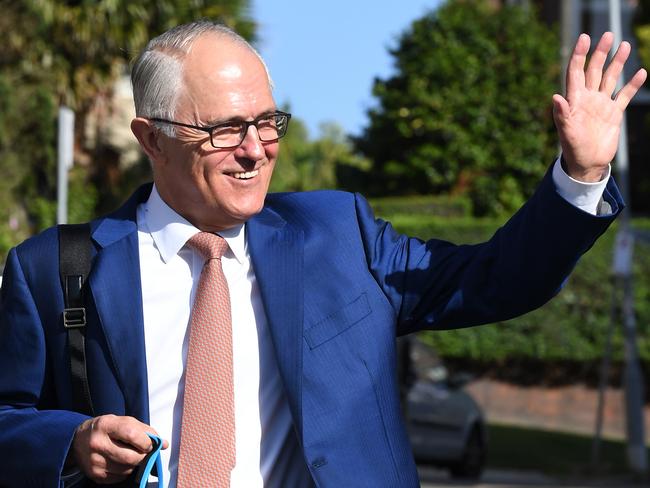
Malcolm Turnbull has sensationally claimed that Scott Morrison and the Coalition he once led didn’t deserve to win the 2019 election and delivered highly personal accounts of his relationship with the current Prime Minister and scathing assessments of his former cabinet colleagues.
In his highly anticipated memoir, due to be released on Monday, Mr Turnbull recounts his own version of events that led to his dismissal as prime minister in August 2018, while revealing the darkest days of a political career that was marked by a bout of severe depression.
TURNBULL QUOTES: How Turnbull describes his foes, ‘friends’ and the ABC
In claims that will be hotly disputed by those he attacks, Mr Turnbull says that colleagues of Mr Morrison, including the Prime Minister’s now closest confidants Mathias Cormann and Peter Dutton, had once described Mr Morrison as a “Machiavellian plotter” who could not be trusted.
According to those who have read the manuscripts, Mr Turnbull describes Mr Dutton as a “narcissist” and “self-delusional” in his belief that he could become prime minister while revealing his personal anguish at what he believes was the ultimate betrayal at the hands of his finance minister, Senator Cormann.
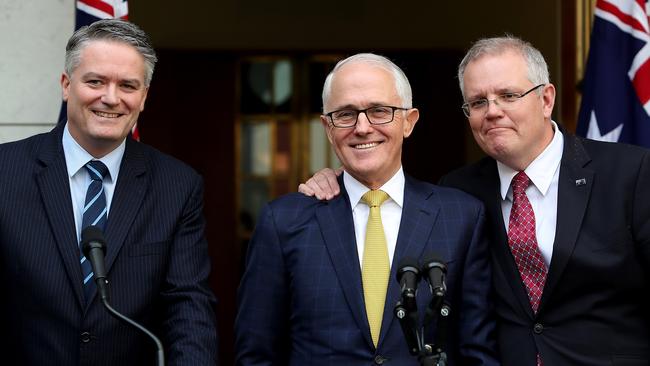
“Cormann’s treachery was the worst and the most hurtful. He’d become a trusted friend of mine ... he used to send me pictures of his children,” Mr Turnbull writes.
But he also accuses Mr Morrison of double dealing in his bid to steal the prime ministership when he had had to be propped up as treasurer and later describes his “cringe-worthy” campaign to portray himself as the “daggy dad” from the suburbs.
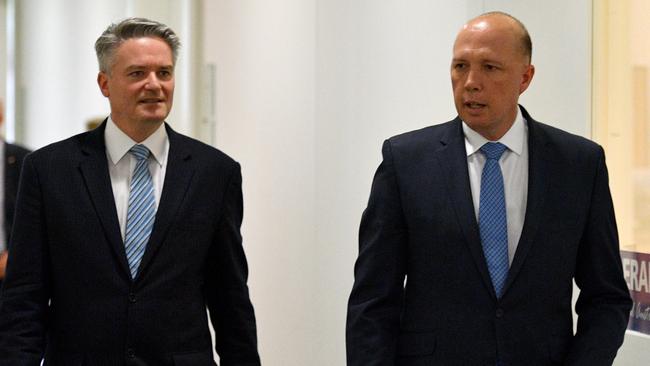
“He’s a professional politician who understands marketing and messaging better than most,” Mr Turnbull writes. “His cringe-worthy ‘daggy dad’ persona is more exaggerated than it is conflated, but in net terms it probably helped.
“All that aside, however, the truth is that Labor lost the election that the Coalition, after the August coup, did not deserve to win.”
Mr Turnbull’s criticisms extend even to those closest to him, including Julie Bishop. While describing her as one of his closest friends, he reveals how his former deputy had wanted to become leader but would never have had the support to attain it.
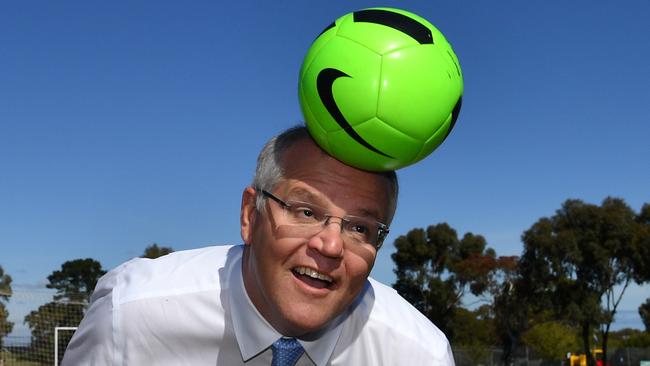
He also lightheartedly accuses fellow moderate Christopher Pyne, whom he also described as close, as being a “gossip”.
“He was a superb raconteur and while very efficient as a minister, his circumspection had its limits,” Mr Turnbull writes.
“When it came to gossip, he was the soul of indiscretion, especially if it was amusing or salacious.”
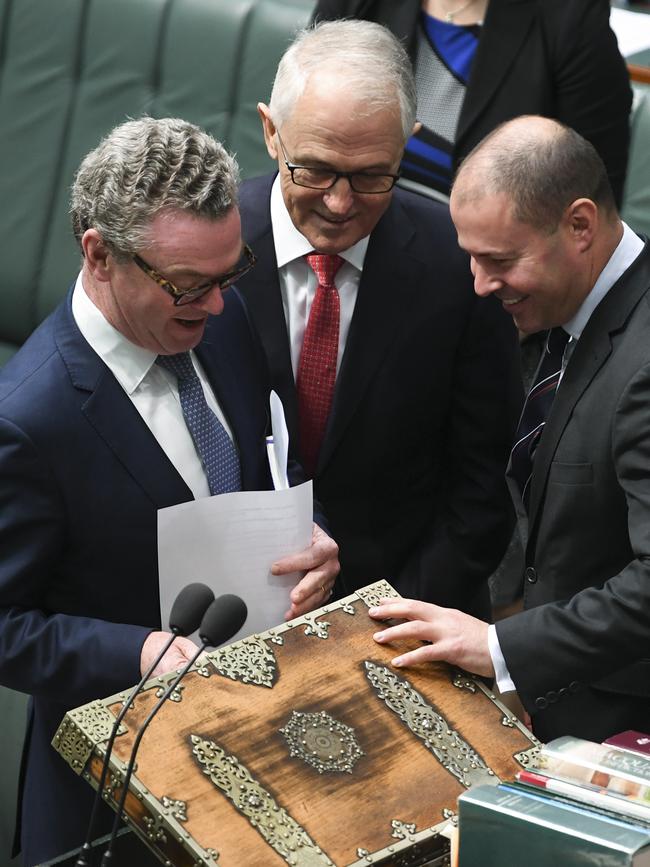
The former Liberal leader also claims to have been the mastermind behind the creation of an Australian version of the left-wing news site The Guardian, urging its UK boss to set up in Australia, brokering its funding and also being instrumental in appointing two senior press gallery journalists, Lenore Taylor and Katharine Murphy, to run its editorial direction out of Canberra.
Mr Turnbull admits that he would have personally funded the project himself, which would have required $20m, but couldn’t because he was a politician.
“Given my political role, I could hardly participate myself but I knew someone who would,” Mr Turnbull writes. He then retells the story of how he approached businessman Graeme Wood, who was on “the political left” and had been a generous donor to the Greens, and persuaded him to “use his fortune to bankroll an Australian edition of The Guardian”.
Mr Turnbull admits that even The Guardian then “rarely endorsed my or my government’s policies”. At the same time, he repeats his claims that the loss of his leadership was not the result of his own political failings but a conspiracy of “the right-wing thugs” with the complicity of conservative media, including The Australian and Sky News.
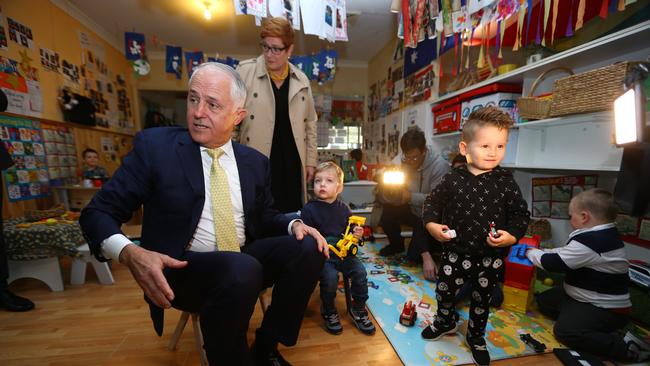
Mr Turnbull repeats false claims of a Murdoch family conspiracy to depose him in favour of his predecessor Tony Abbott.
In the book, A Bigger Picture, Mr Turnbull devotes many pages to divulging highly personal and confidential messages between colleagues, including detailed WhatsApp conversations and diary entries quoting messages from his senior colleagues and others, including journalists from Nine newspapers. He also quotes a private conversation with then US president Barack Obama, who told him not to worry about the prospect of the election of Donald Trump, saying Americans would never elect a “lunatic” to the White House.
Yet, despite releasing swaths of confidential messages and conversations, Mr Turnbull admonishes his former colleagues, political rivals and others throughout the book for releasing confidential information and cabinet considerations.
He does not mention that throughout Mr Abbott’s time as prime minister, the political interests of Mr Turnbull and his supporters were often leaked, including cabinet discussions, to embarrass Mr Abbott.
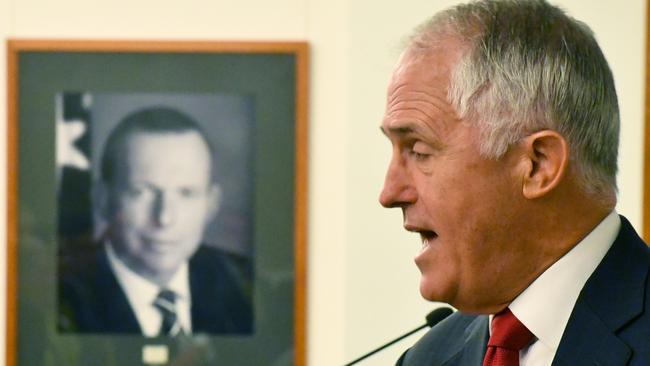
While insisting he didn’t ever believe Mr Morrison was trying to damage the government, he repeatedly raises “trust” issues about the then senior minister he accused of using the media to float ideas and promote his causes.
Mr Turnbull also publishes a long personal note written by Mr Morrison after he became Prime Minister, in which the new leader praised his vanquished predecessor.
“Only you can know how I feel today but I cannot begin to know how you feel,” Mr Morrison is claimed to have told Mr Turnbull in a message.
“I loved working for and with you. I’m really proud of what we did. And that is always how I will always feel and speak of it.
“I don’t know why this all happened but now it has come upon me, you know I will be relying on my faith friends and values to overcome and conquer what is ahead.
“But from one PM to another, thank you for all you did for your country. No one knows that contribution better than me. Love you mate.”
Mr Turnbull replied: “You too Scomo”.
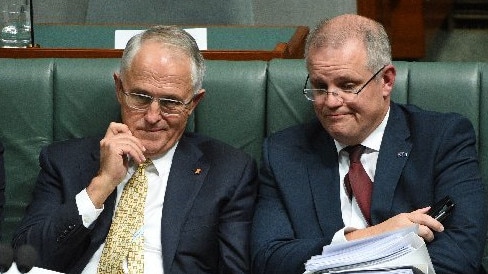
Mr Turnbull was praiseworthy of Mr Morrison’s abilities and said he had resisted calls from Senator Cormann to cut Mr Morrison out of the loop when he was treasurer. “Mathias regarded Scott as emotional, narcissistic and untrustworthy and told me so regularly,” Mr Turnbull claims.
“Of course if Mathias had a poor opinion of Scott, Dutton’s dislike of him was even stronger.”
After he seized the prime ministership from Mr Abbott in 2015, Mr Turnbull writes about the thrill of it all.
“The pace of events hadn’t allowed a moment of reflection, but it had happened: Lucy and I were sitting in C1. I was the prime minister,” he writes.
The proud reference to the prime ministerial vehicle, C1, is in contrast to Mr Turnbull’s criticism, also not in the book, of Mr Morrison for not calling an early election after becoming leader because he wanted to “keep his ass in the back of C1”.

Mr Turnbull also reveals a message he was sent by former attorney-general George Brandis, a moderate ally, who accused him of being politically naive.
“But in contradictory claims he had never regarded Mr Morrison as working against him,” he writes. “I didn’t regard Scott as working against me in a rivalrous way and reposed trust in him but he needed to be managed carefully and always counselled intensely about the need for confidentiality.
“Mathias and I were at our wits’ end as to how to manage Scott. As Mathias said: we have a treasurer problem and the problem was one of trust”.
In one of the most provocative tell-all memoirs from a former prime minister, Mr Turnbull also recounts a conversation with former prime minister Kevin Rudd over the rebuttal of his bid to become UN secretary-general.
“Kevin, the consensus view, and it’s my view too, is that you aren’t suited to the role because of your interpersonal and management skills,” Mr Turnbull writes.
He claims that Mr Rudd described him as a “little f..king rat”.
“You piece of shit,” Mr Rudd was reported to have told Mr Turnbull. “I’m going to get you for this. I’m going to come down to Australia and campaign against you in every part of the country. I will remind them of Godwin f..king Grech you …”
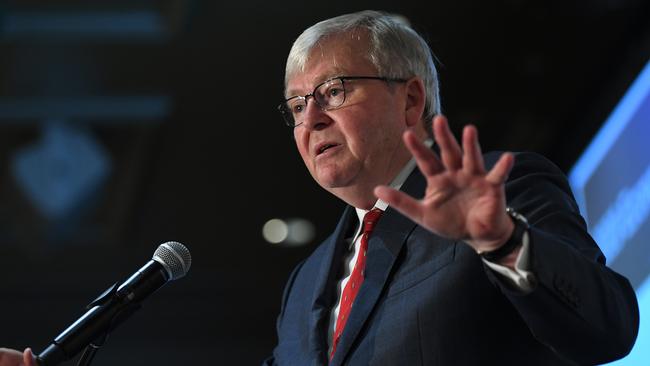
He reveals that Bill Shorten and Ms Bishop, the then foreign minister, thought it would be a good idea to support the Rudd bid for the UN, but Mr Morrison persuaded him not to back the idea.
Mr Turnbull devotes a chapter to Mr Abbott and his then chief of staff Peta Credlin whom he also cites as being instrumental in the destruction of his leadership.
He is unflattering of Mr Abbott, claiming that privately Ms Credlin was disdainful. But he writes that Ms Credlin transformed Mr Abbott into a prime minister.
While Mr Abbott won a mammoth victory in the 2013 election, Mr Turnbull said he needed a “positive agenda” to be successful.
Mr Turnbull skates over the dismal election result he later presided over, in which Mr Shorten almost snatched power.
Mr Turnbull is also critical of his former deputy, then Nationals leader Barnaby Joyce, who he accuses of lying to him over his relationship with a staff member.
“It wouldn’t be true to say that I had no doubt he was lying to me as there’ve been examples of very intense relationships between ministers and staff that aren’t sexual in nature,” he says.
“Among far too many politicians there is an ugly blokey culture of disrespecting women that had nothing to do with adultery but was all about the abuse of power,” he writes. He feared voters would think: “So that’s what our politicians do in Canberra, spend our money boozing and screwing the staff.”






To join the conversation, please log in. Don't have an account? Register
Join the conversation, you are commenting as Logout